I have visited the fine folks of Long Miles Coffee Project in Burundi twice in the past three months. This type of frequent travel to a single location is far from normal for me or Five Senses, but in this situation we weren’t aiming for ‘normal’. We really want to partner well with the team at Long Miles and that needed to start with a better understanding of the situation on the ground on our part.

Head Agronomist or ‘Coffee Scout’ in Long Miles’ terminology, Epaphras.
The main task of our most recent trip was to profile and catalogue each of the nine hills which deliver to the Long Miles’ washing stations; Bukeye and Heza. Long Miles last went about this task officially in 2014/2015. As with any organization though, Long Miles has changed a fair bit since then. They have now furthered the support network for farmers, reduced the impact of the antestia bug and significantly honed their craft on the processing front – all these things have had a dramatic impact in the cup.
For buyers around the world like us, it is helpful for Long Miles to have a catalogue of hill profiles so that they can meet their customers’ wants and needs more effectively. It also helps customers to have a clear understanding of exactly what Long Miles is producing. For my part, having an intimate understanding of each hill opens up some great possibilities for the future.

Beautiful Burundi – outside Banga Guest Lodge, Kayanza.
While scaling with a producer can be a lot of work, I now know exactly where I should direct my attention. Flavour is one thing to clue in on, but another important factor is knowing the production volume of each hill. Thinking a bit more creatively, such cataloguing also shows me where I can request a naturally processed coffee or where we could collaborate on our next experimental lot.
I have to say that I love Long Miles’ willingness to ‘play’ or innovate with coffee!
This year, I asked them if we could experiment with a single day lot – and we ended up experimenting with the coffee and local fruit. We took a particular day lot (about 200kg of cherry), split it into thirds and processed like this:
- one third in the tank with passion fruit
- one third in the tank with oranges
- one third in the tank with no additions to be the control lot to cup against
The experiment was great fun and the results were delicious. When we cupped the three lots blind, it was astonishing to see that each experimental lot cupped on average a full two points higher than the control lot. These coffees will be fun to share in Australia, so keep an eye out for them!

Gervais, one of Long Miles’ ‘farmer friends’ which means that they are doing an exceptional job and are an example to the community for good practices.
Although it was a huge week on the sample roaster and cupping table, we did get a chance to make it upcountry one morning. We visited the Bukeye washing station and were able to walk parts of the Gaharo hill. Tasting beautiful coffee is an unreal experience, but putting faces and a broader context to coffee impacts us all at a completely different level and can be quite confronting. It doesn’t matter which part of the world I’m in, I’m often left wondering why we have it so good in Australia in comparison to many other parts of the world. These questions are not easy to answer and even with a willing heart and desire to help, finding answers or ways to help practically can be a complicated process.
However, the lack of simple answers is not an excuse not to lend a hand where we can, which is why I am excited to share that we will be doing some collaborative work to get worm farms built for the two Long Miles washing stations.
Why worm farms? Well, the Burundian soil is largely depleted of nutrients which means they need to supplement the soil quality quite significantly in order to create a healthy environment for the coffee trees. Unfortunately the traditional avenues for acquiring supplements consistently prove expensive and highly unreliable. What is needed is some way to aid in producing reliable inputs, which is where the worm farms come in.
Over the past few years, I have seen worm farms grow in popularity around the world. Long Miles is no newbie to the humble worm farm, but they have not scaled the practice quite yet either. We want to support this endeavour, both to help the farmers and to hopefully showcase to the broader communities that they can do this themselves. We count it a real privilege to partner with Long Miles in this project and help them in a small way achieve their mission to see lives transformed. But, we’d be lying if we didn’t say we also are excited about sharing the fruit of their labour.



